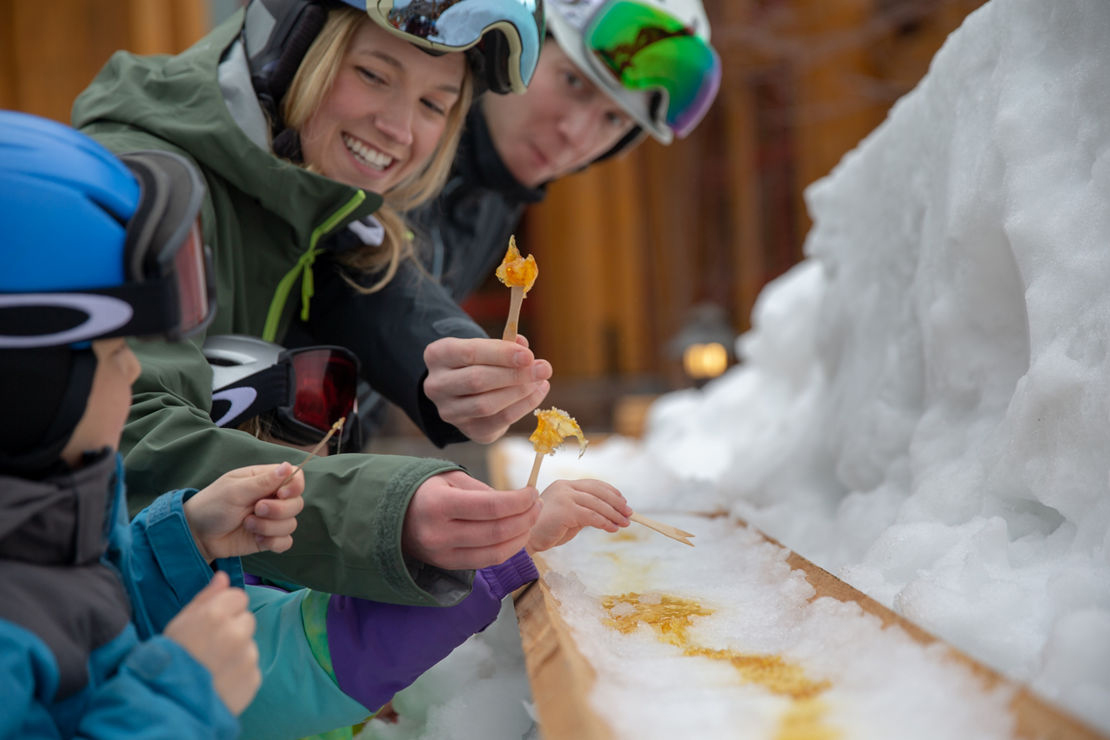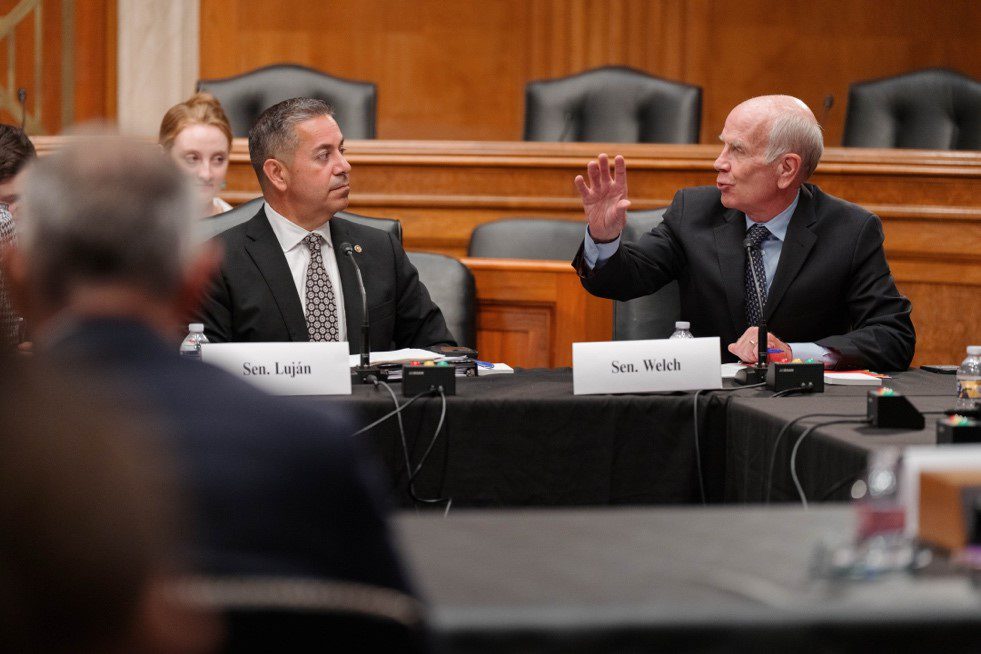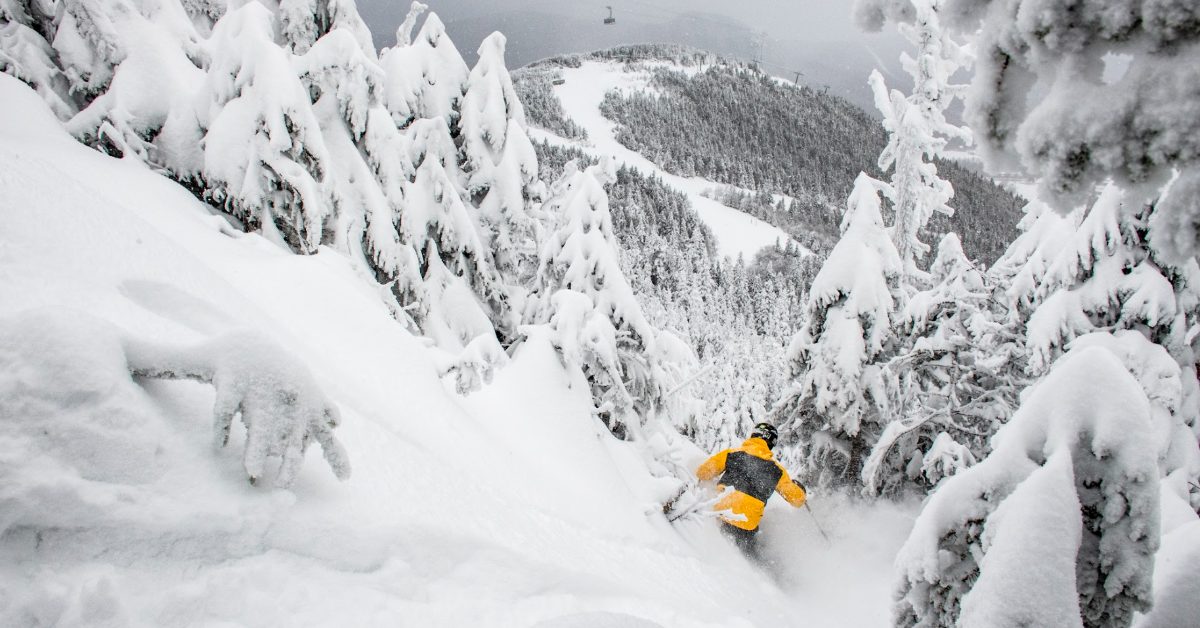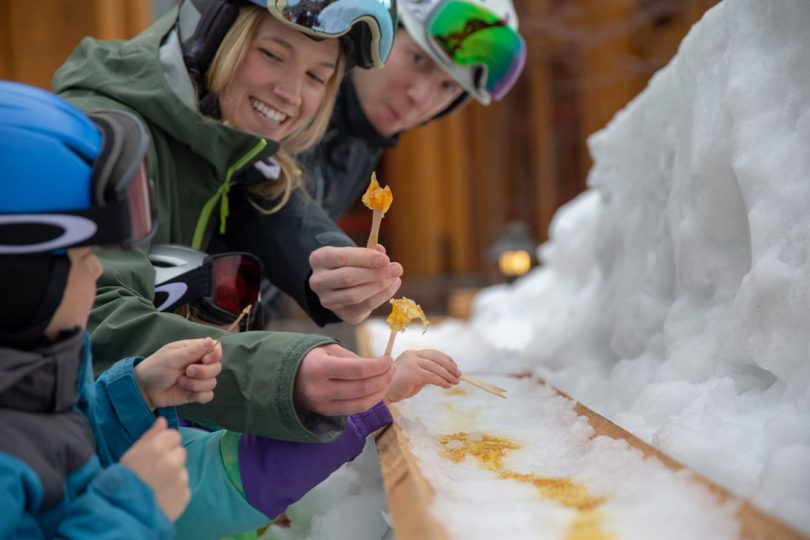
In Vermont’s snow-covered Northeast Kingdom, the winter silence is arriving earlier than expected—not from a lack of snow, but from a lack of visitors. Canadian ones, specifically. Since Donald Trump returned to the presidency, ski resorts and border businesses across northern Vermont have reported a sharp and unsettling drop in tourism from their neighbors to the north as a direct result of tariffs, a volatile exchange rate, and inflammatory rhetoric that many in Canada see as downright insulting.
Nowhere is the damage more evident than in northern Vermont, where ski resorts like Jay Peak, Killington, Burke Mountain, and Smugglers’ Notch depend on Québécois tourism to keep lifts spinning and local economies afloat. Jay Peak Resort, perched just minutes from the Canadian border, has long marketed itself as a friendly winter escape for Montrealers. Skiing is an important economic driver and employer in the state, particularly in rural areas where many ski areas are located. Canadians typically make up 50% for many Vermont ski areas, including Jay Peak. But according to a speech given by Jay Peak’s President and General Manager, Steve Wright, early season pass sales are down, and Canadian purchases in particular are off by double digits, despite the resort offering at-par pricing to offset the exchange rate.
Wright recently spoke at a forum at the U.S. Senate describing how the resort’s $70 million annual business—once owned by a Canadian firm—is being battered by federal policies. “50% of our topline revenue and 60% of our bottom-line profit is derived from Canadian business,” Wright explained, “And Canadians have a long history with Jay Peak, they don’t want to not come to Jay Peak, but a large index of the country’s been galvanized by that anti-Canadian rhetoric.” U.S. Senator Peter Welch, member of the Senate Finance Committee, had invited Wright, to speak at the forum which discussed the impact of tariffs and policies (as well as current rhetoric and attitudes) by the Trump administration on businesses, manufacturing, farming, and tourism.


In the forum, several senators highlighted how the current administration’s policies are impacting businesses across America. “We have Canadian workers, Canadian homeowners and dual citizenship locals that strengthen our brand both financially and culturally. Our french fries come with American gravy and Canadian cheese curds, and the resort consumes equal parts Budweiser and Molson,” Wright stressed, trying to convey how integrated the cultures and economies of Vermont and Quebec truly are. That cross-border closeness is now under strain.
According to Vermont Ski Areas Association (Ski Vermont), Vermont’s ski areas saw a total of 4.16 million skier visits during the 2024–25 season. Ski tourism contributes around $1.6 billion to Vermont’s total travel and tourism industry—that is 40% of Vermont’s $4 billion tourism industry. The ski industry supports about 13,000 jobs directly and indirectly in Vermont, across lodging, food services, retail, and transportatio and Vermont consistently ranks in the top 4 U.S. states for skier visits, behind Colorado, California, and Utah. Canadian cross-border visitors make up as much as half of Vermont’s 4.16 million skier visits at several Northeast Kingdom ski resorts. In fact, many Vermont ski resorts, including Jay Peak and Burke Mountain, have been offering at-par exchange rates with the Canadian Dollar, while Smuggler’s notch has been offering 30% discounts, to attract Canadian visitors.


Now Trump’s “51st-State” rhetoric is putting a damper on Canadian visitation numbers. The decrease started towards the end of the 2024-25 season, but is now being felt at those resorts that are offering summer activities as well as 2025-26 season pass sales. “Recent data shows that hotel reservations from Canadian visitors is down 45% between January and April, credit card spending is down nearly 40% across the same time.” Wright, who is also the Chair of Ski Vermont, pointed out. “Border crossings have declined now for five consecutive months and are now down 35% to date, and, most importantly, visits to Vermont’s tourism website, vermontvacation.com, —which is a planning data point reflecting the likelihood of visiting sometime in the future—is down 70% across the first few months of the year,” the seasoned ski industry veteran added.
Wright stated in the forum that he had spoken to 100 Canadian households, who used to purchase season passes for Jay Peak, but had not yet purchased one for the 2025-26 season. The feedback was that the Trump administration’s “flagrant disrespect of Canadian independence” has not only challenged Canadian sovereignty, but Canadians’ own identity and that they could not in all conscious return to the U.S. for skiing under these circumstances. “We are forecasting a potentially catastrophic amount of trouble relating to Canada’s unwillingness to visit this summer next winter,” Wright admitted. “It undermines the long-standing relationship built on the respect and shared enjoyment of the outdoors, as well as economic incentive has come under fire and cannot be overstated.”


Jay Peak’s Wright is not alone with his observations. At the Wildflower Inn in Lyndonville, Canadian bookings are down sharply, and online ads targeting Quebec were pulled after they were met with profanity-laced comments. At Hill Farmstead Brewery in Greensboro Bend, a quarter of their customers once came from Canada. Sales are down, and higher costs from Canadian-sourced bottles and tariffs on exports are compounding the problem. But it’s more than anecdotal evidence, data collected at government agencies in Canada show that over the past three months, the number of Canadians returning from road trips to the U.S. is down by 25% and Air Canada reported a drop in bookings to the U.S. of 10%. “Here in Vermont and within the border economy we are curious as to when the upside of this anti-Canadian rhetoric starts to present itself,” Wright concluded his statement, “Because, along with those businesses along the northern border, we are presently living right in the middle of its downside.”
For ski resorts and towns that once thrived on the warmth of cross-border friendships, the impact is being felt in real time—in lost revenue, empty lodges, and a quiet tension that no amount of fresh snow can cover up. For Vermont’s ski resorts that operate on thin margins at the best of times, a significant drop in Canadian visitors in the 2025-26 season could prove disastrous.
The full video of Steve Wright’s speech at the U.S. Senator’s forum was uploaded by Peter Landsman on his LiftBlog X (Twitter) account.
Speaking to US Senators, Jay Peak President and General Manager Steve Wright details catastrophic impacts from recent tariff policy and rhetoric. pic.twitter.com/0F5pkLarct
— Lift Blog (@liftblog) June 11, 2025










